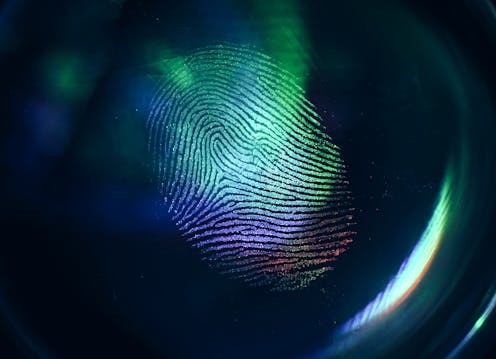‘Junk science’ is being used in Australian courtrooms, and wrongful convictions are at stake
- Written by Gary Edmond, Professor of Law, UNSW Sydney

The conviction of Robert Farquharson for the murder of his three sons on Father’s Day 2005 is being questioned in the media, with doubts raised about the reliability of prosecution’s medical, traffic reconstruction and sinking vehicle evidence.
This case has echoes of Henry Keogh, David Eastman and Lindy Chamberlain. Their murder convictions were overturned when scientific and medical testimony from their trials was eventually found to be unreliable.
The handling of expert opinion evidence by Australian courts is in a crisis. Curiously, our courts appear oblivious. They use forensic science evidence without regard for the best scientific advice.
Australian courts ignore criteria recommended by peak scientific organisations such as the United States National Academy of Sciences and the Australian Academy of Science (AAS). The chief executive of the AAS, Anna-Maria Arabia, has warned that our courts are susceptible to “junk science”. Why is this happening and what can we do?
A lack of formal validation
Unlike most witnesses who can only testify as to facts, experts are allowed to express opinions based on “specialised knowledge” that would otherwise be unavailable to the court. Prosecutions frequently rely on expert evidence such as DNA profiles, fingerprint comparisons and post-mortem reports.
Problematically, courts fail to insist on formal validation of the experts’ methods before their opinions are admitted. In 2009 the US National Academy of Sciences concluded that, apart from DNA,
no forensic method has been rigorously shown to […] consistently, and with a high degree of certainty, demonstrate a connection between evidence and a specific individual or source.
The academy expressed concerns about the accuracy of expert comparisons of fingerprints, ballistics, hairs, handwriting, bite marks, explosives, paints and blood stains.
Scientists have been working hard to enhance forensic sciences in the aftermath of the report. While there have been validation studies and practical improvements in some areas, subsequent independent reports have typically remained critical in their evaluations.
For example, fingerprint examiners were shown to be accurate but not infallible, as was claimed historically. Their error rate is roughly 1 in 400.
Other comparison procedures fared less well. For example, despite formal qualifications in dentistry and forensic experience, forensic dentists can’t reliably link a bite mark on human skin with specific teeth. Indeed, they can’t even determine whether marks on skin are bite marks.
Bad science in the courtroom
Australian courts don’t have rules, procedures and personnel that can effectively regulate the admission of these types of evidence.
Forensic scientists can implicate defendants without reference to validation studies and without appropriate caveats. Courts are often shielded from error rates and scientific criticism. Little account is taken of the risk evidence is biased by examiners’ exposure to information implicating the suspect, and examiners’ close relations with prosecutors.
Australian courts have also ignored recent scientific reports and academic demands that we need to tighten the rules for what evidence is admitted in court.
Rules require expert opinion to be substantially based on “specialised knowledge”, but this doesn’t involve the reliability of that knowledge.
Australian courts tend to rely on proxies for specialised knowledge. These can be general qualifications, job titles, experience, previous appearances in court and the plausibility of the expert’s interpretation.
No one in court – neither prosecutors, expert witnesses, nor trial and appellate judges – addresses the all-important questions: can the expert do it? How well? And how do we know? As a consequence, “junk science” is routinely admitted, leading to incurable unfairness and even wrongful convictions.
Defence counsel are also at fault. Australia’s leading advocates are rarely effective in cross-examining forensic scientists about the validity and accuracy of their opinions.
American legal scholar John Henry Wigmore said cross examination is “the greatest legal engine ever invented for the discovery of truth”. But it consistently fails, as have other adversarial mechanisms, such as opposing witnesses and judicial directions.
Expert evidence of dubious reliability is regularly admitted and left to the jury to somehow evaluate.
Ignorance isn’t an excuse
Perhaps the criminal justice system’s scientific ignorance shouldn’t be surprising. This ignorance is the very reason we need expert evidence.
But lawyers and judges can become complacent toward their critical abilities and the effectiveness of traditional legal rules, procedures and safeguards. (This complacency contributed to the failure of the 2019 inquiry to correct Kathleen Folbigg’s wrongful conviction.)
The very reason for holding a trial is that we don’t know if the defendant is guilty. But this unknown and the finality of a jury verdict means we don’t tend to get meaningful feedback on the system’s effectiveness (or lack thereof).
Evidence-based reform is urgently needed. We should impose an explicit reliability standard on all expert opinion evidence. Courts need to understand the limitations of forensic science and medicine evidence. Their proud legal traditions should not insulate them from the chorus of advice from peak scientific bodies.
The federal government should create an independent multidisciplinary panel to provide scientific assistance on controversial subjects such as CCTV and voice identification, or whether there are reliable means of identifying abusive infant head trauma.
Finally, Australian governments should also establish an independent Criminal Cases Review Commission to uncover and refer potential wrongful convictions back for further appeal.
Such a body, operating outside the traditional adversarial system, may help persuade complacent criminal courts that seemingly damning “expert” evidence should not always be taken at face value.
Authors: Gary Edmond, Professor of Law, UNSW Sydney



















